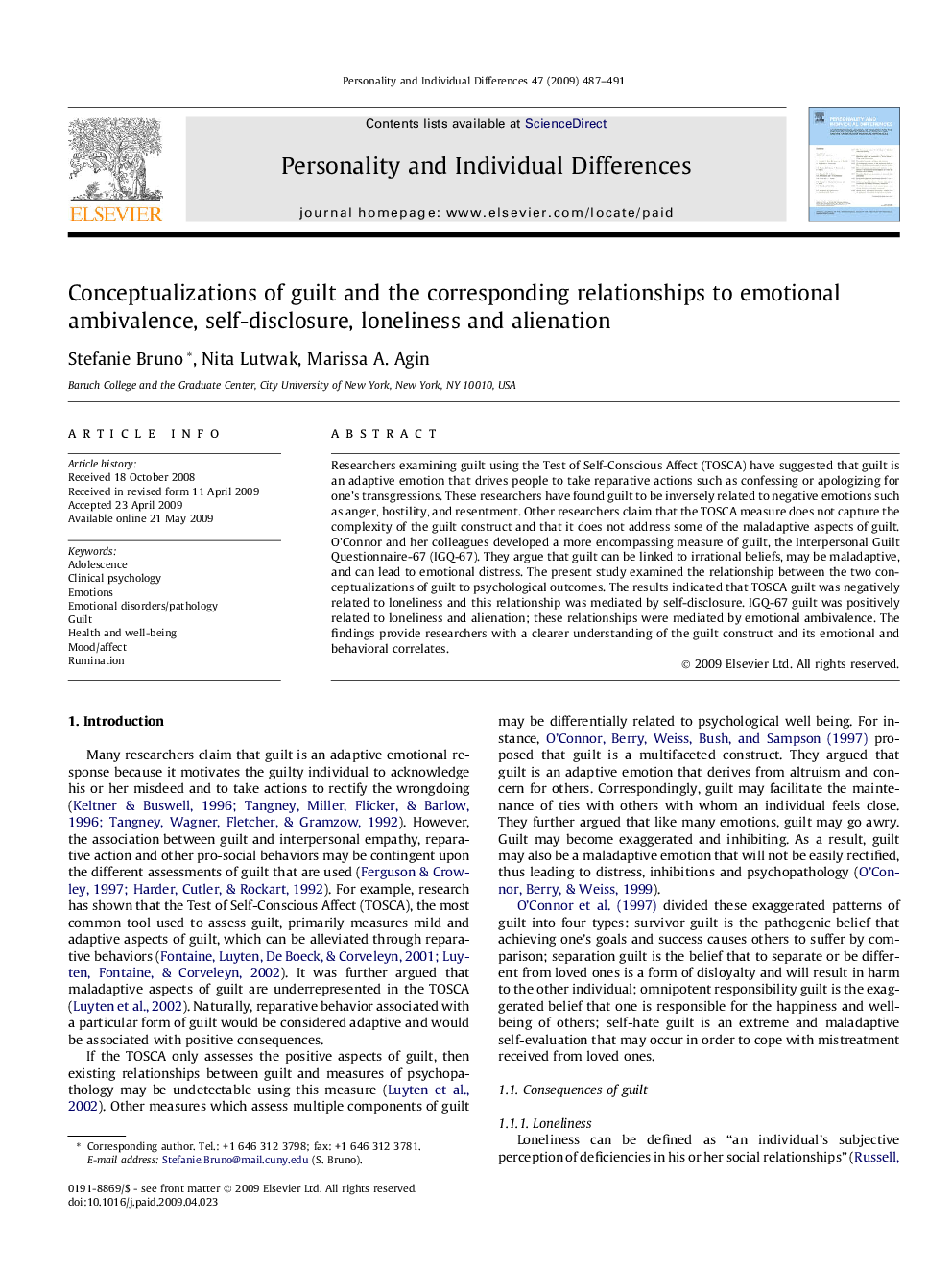| Article ID | Journal | Published Year | Pages | File Type |
|---|---|---|---|---|
| 892079 | Personality and Individual Differences | 2009 | 5 Pages |
Researchers examining guilt using the Test of Self-Conscious Affect (TOSCA) have suggested that guilt is an adaptive emotion that drives people to take reparative actions such as confessing or apologizing for one’s transgressions. These researchers have found guilt to be inversely related to negative emotions such as anger, hostility, and resentment. Other researchers claim that the TOSCA measure does not capture the complexity of the guilt construct and that it does not address some of the maladaptive aspects of guilt. O’Connor and her colleagues developed a more encompassing measure of guilt, the Interpersonal Guilt Questionnaire-67 (IGQ-67). They argue that guilt can be linked to irrational beliefs, may be maladaptive, and can lead to emotional distress. The present study examined the relationship between the two conceptualizations of guilt to psychological outcomes. The results indicated that TOSCA guilt was negatively related to loneliness and this relationship was mediated by self-disclosure. IGQ-67 guilt was positively related to loneliness and alienation; these relationships were mediated by emotional ambivalence. The findings provide researchers with a clearer understanding of the guilt construct and its emotional and behavioral correlates.
